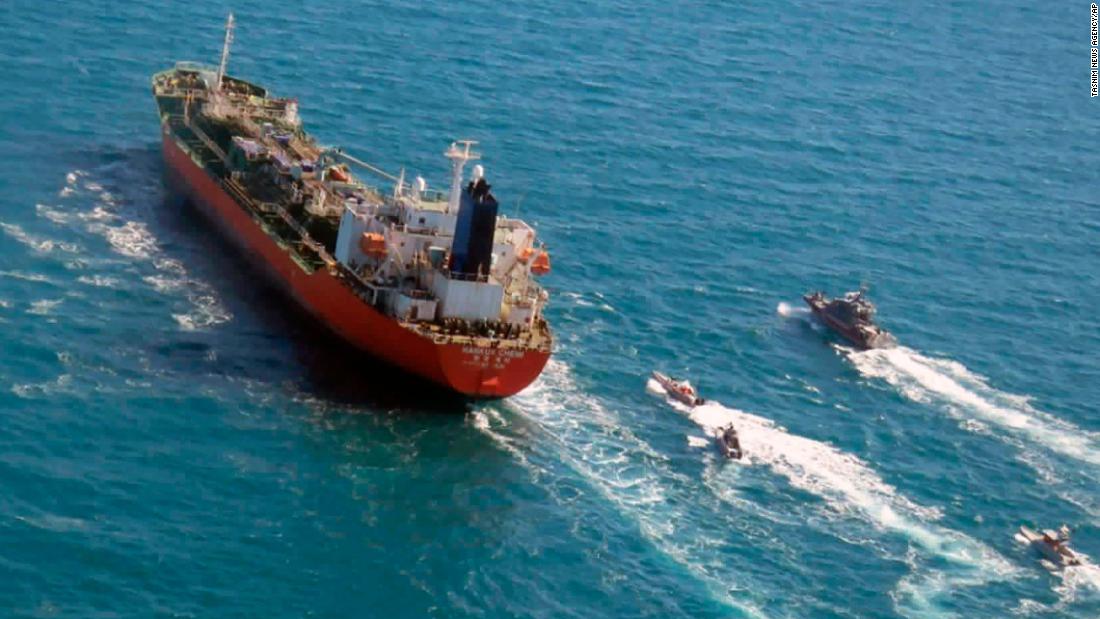
In a press release on Friday, South Korea’s Foreign Ministry said Hankuk Chemi and his captain were released early Friday, Iran time. The health of the captain and crew was healthy – as was the cargo, the ministry said.
His release comes after South Korea vowed to try to secure the release of frozen Iranian funds in South Korean banks under US sanctions, a South Korean official told Reuters.
The Iranian foreign minister confirmed the release of the ship following an investigation and at the request of its owner and the South Korean government, according to the state news agency IRNA.
“Iran, with long coastlines in the Persian Gulf and the Sea of Oman, emphasizes full compliance with maritime regulations, including environmental protection, and monitors any violations in this regard,” said Saeed Khatibzadeh, a foreign ministry spokesman.
He said the Iranian decision to release the captain took into account the fact that he had not registered any past violations in the region.
The issue sparked a diplomatic dispute after Iran asked South Korea to release $ 7 billion in frozen funds in South Korean banks under US sanctions.
A South Korean Foreign Ministry official told reporters on Friday that both sides had agreed on the ship, and the funds were not a problem, and South Korea had promised to help release the money.
“We have expressed a strong desire to resolve the issue of the fund,” said the official, who declined to be identified.
The South Korean ministry said in a statement that the ship left Iran after completing administrative procedures. He did not mention the request for release of funds.
“The captain and the sailors are feeling well,” the ministry said.
South Korea said the ship did not cause any pollution. The ministry official said Iran had dropped a criminal prosecution plan against the shipping company.
Iran has denied allegations that the seizure of the oil tanker and its crew was a hostage-taking, saying South Korea held Iranian funds hostage.
The freezing of funds is linked to the US sanctions that Washington re-imposed on Tehran in 2018 after then-President Donald Trump withdrew from Iran’s 2015 nuclear deal with world powers.
Under the Biden administration, the United States and Iran have begun indirect talks on a return to the agreement.
The United States recently agreed to allow Iran to use the funds for non-military purposes and spent some on coronavirus vaccines provided through the global COVAX initiative, the ministry official said without giving a precise amount.